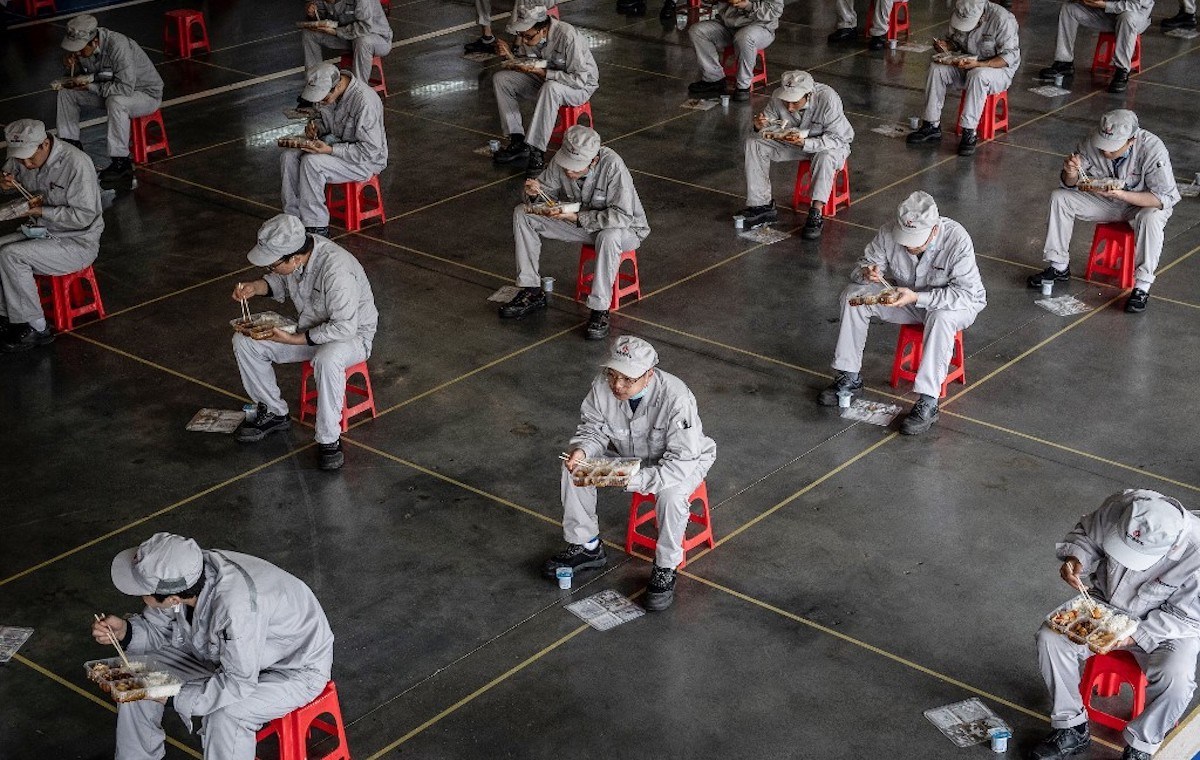[ad_1]
As China’s New Year approaches, train departures from China’s major urban centers like Shanghai and Guangzhou are being canceled en masse as few migrant workers are streaming out of the cities. Bookings and ticket sales have dropped dramatically.Â
Even in early 2020, when China was already in the grip of Covid-19, tickets from coastal provinces to Western rural areas and upcountry villages were being snapped up amid the annual bumper weeks of travel in the lead-up to the Chinese New Year break, a traditional time for family reunions.Â
But this year, Chinese state media’s coordinated push for employees to remain at work, as well as rewards offered by employers and the rumored edicts from the top leadership to slash departures and add health checks and red tape, have apparently paid off.
Xinhua cited estimates from the Transportation Ministry that the number of trips for the week-long Lunar New Year break – starting from next Friday, February 12 – would be more than half of 2019’s record of 3.3 billion.Â
Beijing’s travel curbs and insistence on thinned-out crowds and muted celebrations during the festive season are all precautions against more Covid flareups, as the nation is turning the tide on outbreaks that have hit the capital and a few northern provinces since the beginning of the year. Â
While railway station concourses and waiting rooms in major cities sit empty, factories in industrialized provinces across Zhejiang, Jiangsu and Guangdong are still humming. In previous years, employers would have already released their staff.Â
China’s Purchasing Managers’ Index (PMI), which contracted slightly month-on-month in January to 51.3 as manufacturing slackened, may gain stream this month now that many plants are operating at full capacity on extended working days as most migrant workers have been retained.Â
Chen Ke, an official with Zhejiang’s Provincial Economy and Information Technology Department, told Asia Times that extra industrial output from a shorter Chinese New Year break could accelerate gross domestic product (GDP) growth by 1.5-2% for February.
The department’s survey showed most factories in the manufacturing hub planned to only have two to three days off for the New Year break.
Zhejiang’s economy stirred back to life in the second half of 2020 and registered 3.6% annual GDP growth to hit US$1 trillion. The province exported $389.7 billion worth of goods last year, mostly to the United States and European Union.Â
The affluent province has now revised upwards its GDP growth for 2021 to 6%, Xinhua quoted Zhejiang Governor Zheng Shanjie as saying.
Chen also said that the province’s long-distance transportation sector, including its airlines, would not expect a big dip in earnings amid the deep drop in passenger numbers.Â
“It’s true migrant workers used to travel by rail from Zhejiang back to their rural homes in Jiangxi, Anhui, Henan and other agrarian provinces, but Zhejiang’s railway operator used to suffer losses from the huge flow of people to inland provinces as the prices of tickets are usually capped,†said the official, adding that the loss-making service was not needed in 2021.
“Railway operators have to use part of the revenues from high-speed trunk routes between Shanghai and Ningbo that cater to business travelers to make provisions for the losses each year. As for aviation, since most migrant workers seldom travel by air, airlines see a minimum impact on their profitability.â€
The official also revealed that consumption sentiment was also upbeat, as shown in the department’s monthly economic outlook survey report submitted to provincial leaders.Â
“Migrant workers from inland provinces do not just operate production lines in Zhejiang, a growing portion also work as waiters and shop assistants. so when they are staying put, restaurants and shopping malls can also extend their business hours. This can also stimulate more spending by local residents,†said Chen.Â
‘Sole manufacturing power’
State media has also suggested that fewer people on the move and more staying on the job over the holiday will contribute positively to the rest of the world.Â
On Thursday, Xinhua ran an op-ed noting that when China – the “sole manufacturing power for the largely shelter-in-place world†– keeps its factories running as workers forgo family reunions and take fewer days off, the West can expect stable and ample exports of not only consumer goods for prolonged homestays but also vital medical supplies when countries fight a protracted war against Covid and launch their respective inoculation programs.Â
The official news agency reported that syringe producers in Zhejiang and Jiangsu had been operating non-stop and urged workers not to take leave and continue cranking out hypodermics at a time they are in short supply in the US.Â
Xinhua claimed that since China continues to keep local infections low and the need to mass immunize the entire population was not urgent, the National Development and Reform Commission had advised suppliers in Zhejiang and Jiangsu to prioritize orders of syringes from the US and elsewhere.Â
“But these acts of goodwill and the unsung heroes in Chinese factories are always neglected or under-appreciated by the US and its allies as they continue to spew hatred and false allegations against China,†it said.
Xinhua also reported that medical device suppliers in these provinces are also investing in expanding their capacity but few would seek to pass the extra costs onto overseas buyers.Â
The World Health Organization estimated that 10 billion vaccine doses would be needed this year worldwide as countries speed up vaccination drives to beat the viral spread, and a supply of syringes must be guaranteed to ensure their timely use.
[ad_2]
Source link













